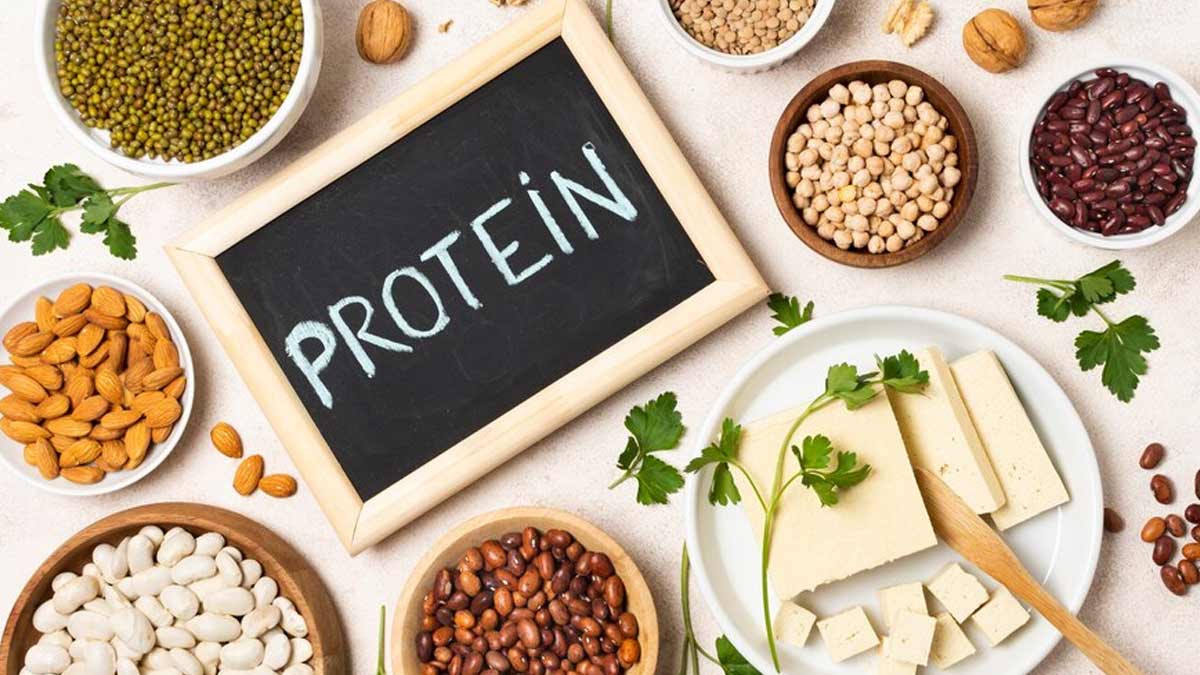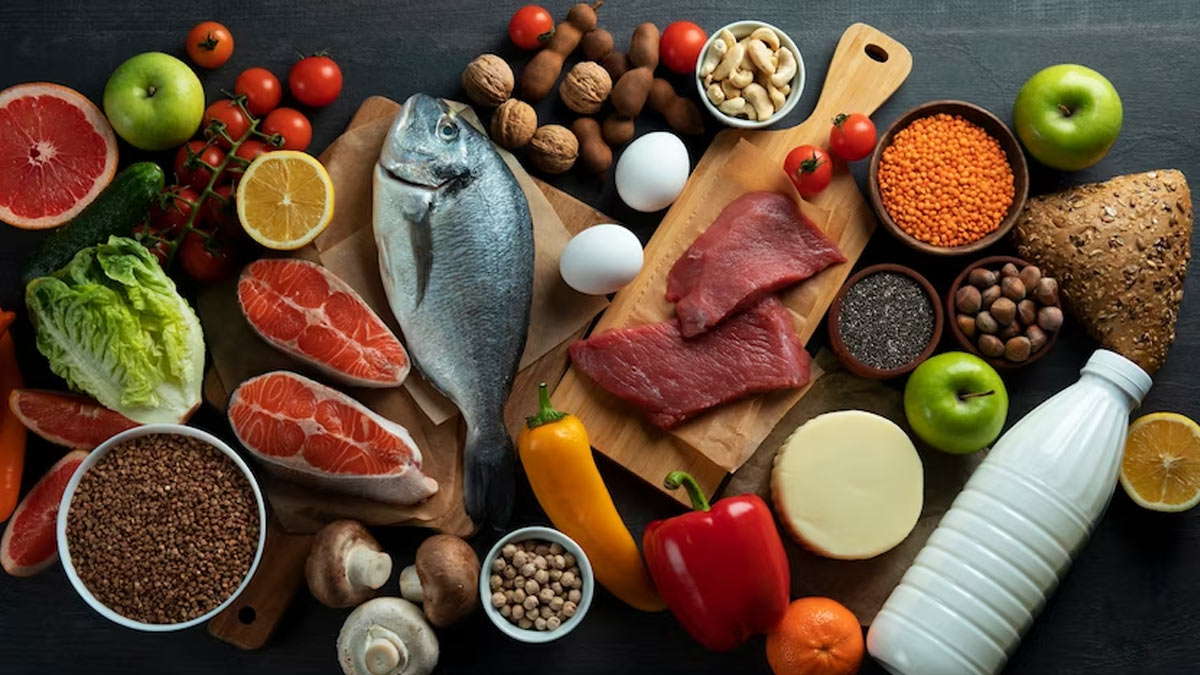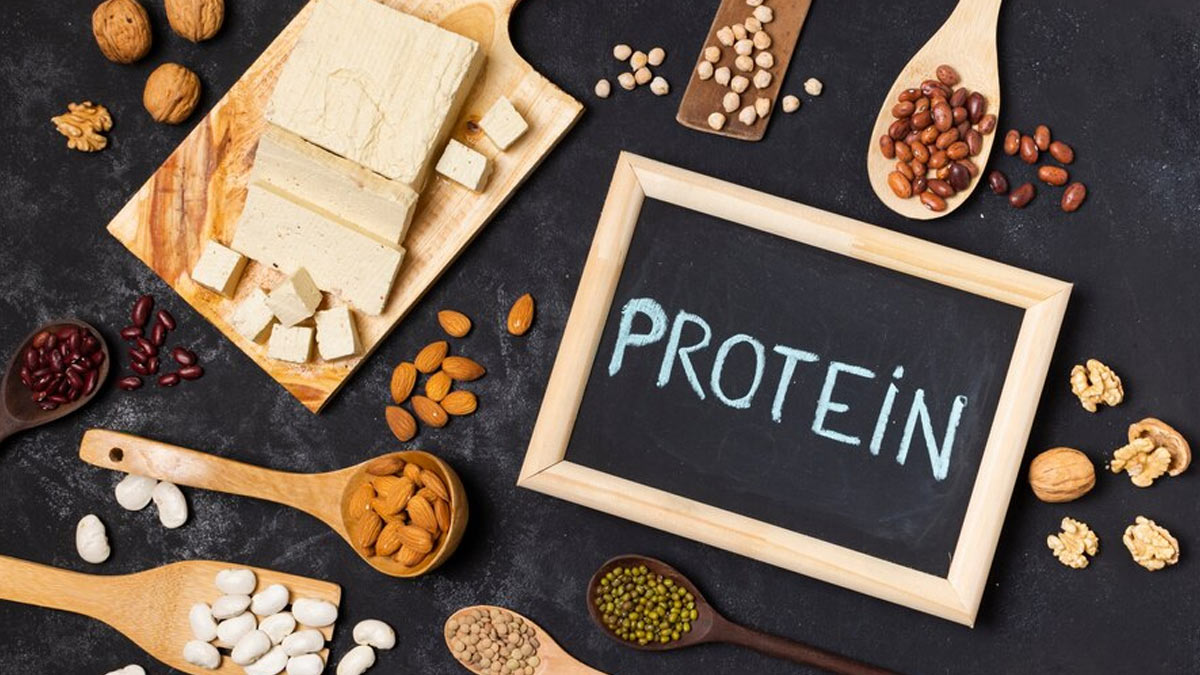
Proteins are the building blocks of life that help repair muscles and your body's tissues. It is what fuels our body and also facilitates growth and development in children. But when it comes to protein intake, it is integral to strike the right balance rather than going overboard. On the other hand, it is important to ensure that you're not limiting protein consumption, as it can lead to a deficiency. Speaking with the OnlyMyHealth team, Dr Srabani Mukherjee, Dietician, Fortis Anandapur, Kolkata, shared the right amount of protein to consume.
Also Read: Protein-Rich Foods That Help Reduce Your Risk Of High Blood Pressure or Hypertension
Signs Of Protein Deficiency

“Protein deficiency can have a significant impact, leading to muscle wasting, a weakened immune system, impaired organ function, and delayed wound healing,” said Dr Mukherjee, adding, “It's important to note that malnutrition, whether in the form of undernutrition or overnutrition, can result in protein deficiency.”
According to a 2017 survey conducted by the Indian Market Research Bureau (IMRB) in seven Indian cities, the prevalence of protein deficiency among urban rich Indians was 73%, whereas 93% were unaware of their Recommended Dietary Allowance (RDA), as reported in the study published in the Indian Journal of Endocrinology and Metabolism.
Common symptoms of protein deficiency include:
- Decreased muscle mass and muscle weakness
- Oedema, particularly in the legs, feet, and abdomen
- Slowed growth and development, especially in children
- Weakened immune system
- Fatigue and weakness
- Thin, brittle, or colourless hair
- Dry, flaky skin that is prone to infections
- Brittle nails
Signs You’re Eating Too Much

As important as it is to avoid protein deficiency, it is equally crucial to avoid eating too much protein, as it can also affect overall health. According to Dr Mukherjee, the recommended daily protein intake varies depending on age and activity level. She recommended:
For an adult person, the recommended protein intake is 1.2–1.5 grams per kilogram of ideal body weight per day.
For children and adolescents, the recommended protein intake is 1.5 grams per kilogram of body weight per day. This higher intake is due to their increased activity and growth.
Eating too much protein can lead to:
- Intestinal discomfort and indigestion
- Dehydration
- Unexplained exhaustion
- Nausea
- Irritability
- Headache
- Diarrhoea
As per Medical News Today, protein overconsumption can also cause:
- Cardiovascular disease
- Blood vessel disorders
- Liver and kidney injuries
- Seizures
- Death, in severe cases
Also Read: Expert Tells Reasons To Eat More Protein Daily
Healthy Protein Sources

Dr Mukherjee said, “There are two primary sources of protein: animal sources and plant sources.”
She shared, “Animal sources of protein include various meats (e.g., beef, chicken, poultry, fish), eggs, and dairy products. These are considered good-quality proteins with high biological value.”
She added, “Plant sources of protein include pulses, legumes, nuts, and mushrooms. However, these sources may lack some essential amino acids and are not as biologically complete as animal proteins.”
In addition, vegetarians can supplement their protein intake with dairy products, which contain adequate amounts of essential amino acids and are considered superior-quality proteins, according to the doctor.
Also watch this video
Read Next
Ajwain For High Cholesterol: Here Are Benefits Of Carom Seeds And How To Add Them To Your Diet
How we keep this article up to date:
We work with experts and keep a close eye on the latest in health and wellness. Whenever there is a new research or helpful information, we update our articles with accurate and useful advice.
Current Version